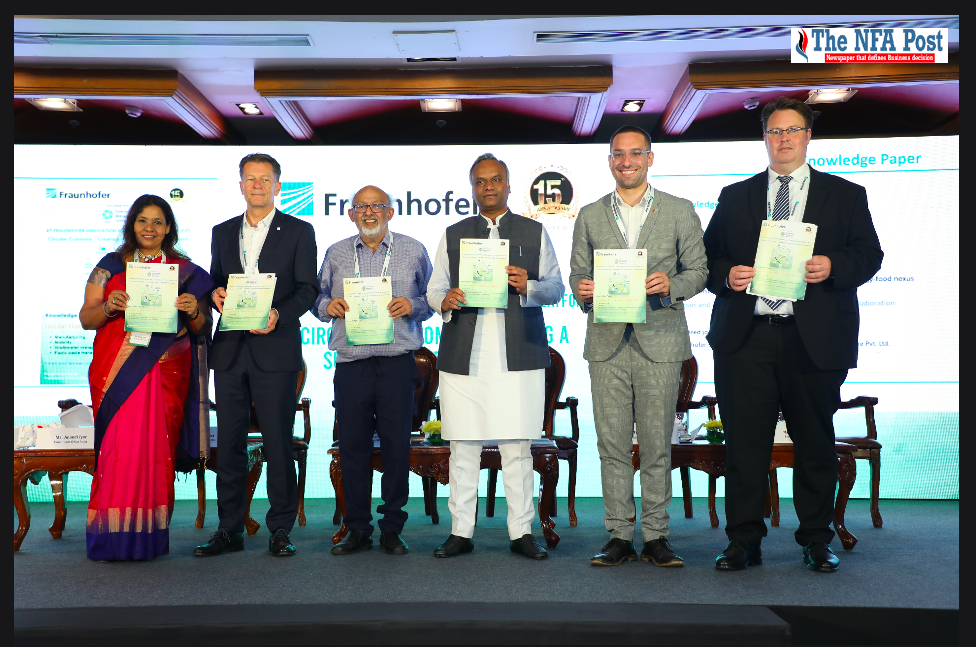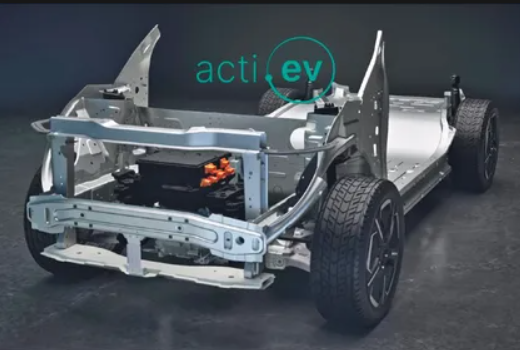Fraunhofer Institute Announces Partnerships on Hydrogen Tech, Innovation Clusters In India
Fraunhofer Institute for Solar Energy Systems (ISE) announced partnership with the Department of Science and Technology (DST) for Hydrogen technologies as technology partner for the Hydrogen Valley Initiative
Also, Fraunhofer IPT envisages a partnership with the State of Tamil Nadu for Innovation and digitalisation clusters
Bengaluru, NFAPost: During its 6th Fraunhofer Innovation & Technology Platform (FIT), Europe’s largest applied research organisation, Fraunhofer announced a collaboration with two leading partners in India: Department of Science and Technology (DST) for Hydrogen Technologies and with the State of Tamil Nadu for Innovation and digitalization clusters.
The sixth edition of the FIT platform this year was themed around circular economy across manufacturing, mobility, packaging, and recycling and water-food-energy nexus today.
The event was attended by over 250 industry experts, government, and research organizations. Fraunhofer is a valued partner of the Indian government and is actively part of many
government projects in several states.
Welcoming the participants, Fraunhofer India Director Anandi Iyer talked about Fraunhofer’s
work in India.
“As we celebrate 15 years of our journey in India, we reflect on our mission to bridge experiences from Germany and cultivate a meaningful presence in India’s burgeoning innovation landscape. This milestone is marked by the largest delegation ever to visit India, underscoring Fraunhofer’s exceptional position as a global innovation ecosystem,” said Fraunhofer India Director Anandi Iyer.
She also highlighted that the unique strength lies in seamlessly blending fundamental research with industry collaboration.
“We serve as the linchpin that binds these two entities, facilitating the swift transition of cutting-edge research into market-ready solutions—a testament to our commitment to driving innovation at an accelerated pace,” said Fraunhofer India Director Anandi Iyer.
Addressing the event, Karnataka Minister of IT/BT and Panchayati Raj Minister Priyank Kharge announced the setting up of a circular economy cluster and invited Fraunhofer to partner in
this initiative.
“The government of Karnataka is working solidly with relevant implementation strategies that will instil confidence in businesses to adopt a circular production model. The government of Karnataka understands the importance of a circular economy,” said Karnataka Minister of IT/BT and Panchayati Raj Minister Priyank Kharge.
He also pointed out that it has been included in key state policies: The startup policy of the Karnataka state, the urban solid waste management policy of 2020, the Karnataka registered vehicle scrapping policy of 2022, the E-waste management rule of 2022.
“All these policies are aimed at early adoption and energizing of the circular economy. We are coming up with a circular economy lab. So, I would request Germany to be a part of the Center of Excellence because we see the best practices being set up there. We will be coming up with probably India’s first Circular Economy lab, along with the Department of Panchayat Raj and rural development along with the partnership with the private players and academia and other governments,” said Karnataka Minister of IT/BT and Panchayati Raj Minister Priyank Kharge.
The sixth FIT Summit held in Bangalore aimed at showcasing cutting-edge technologies, innovations & solutions, especially during India’s presidency during the G20 since the beginning of 2023.
Over 15 Fraunhofer experts from various institutes participated and showcased technology solutions for smart technology intervention in India.
Fraunhofer Institute for Interfacial Engineering and Biotechnology (IGB) Director Markus Wolperdinger was the Fraunhofer Chairperson for the 6th FIT.
Talking about this year’s theme on the circular economy, Fraunhofer Institute for IGB Director Markus Wolperdinger said in today’s predominantly linear economic model, humanity often follow a pattern of extracting resources, manufacturing products, using them, and ultimately discarding them, only to begin the cycle anew.
“However, it’s increasingly evident that this linear paradigm cannot effectively address the world’s pressing challenges. We urgently require a shift towards a circular approach—a concept rooted in sustainability and responsible resource management,” said Fraunhofer Institute for IGB Director Markus Wolperdinger.
Fraunhofer Institute for IGB Director Markus Wolperdinger also said humanity must recognise that all share one planet with finite boundaries, and humanity’s actions must align with these planetary limits to ensure human beings long-term existence.
“The key to achieving this lies in embracing a circular bio-economy. In this context, bioeconomy
extends beyond simply utilizing renewable resources; it encompasses a comprehensive integration of diverse technologies and methodologies. At Fraunhofer, we have over 50 of our 76 institutes working in this field,” said Fraunhofer Institute for IGB Director Markus Wolperdinger.
He also said Fraunhauver has a large number of R&D projects to come up with new solutions for a circular economy and to understand better how a circular economy contributes to the global challenges.
The event set the pace for understanding the issues and challenges related to circular economy
and sustainability and showcased Fraunhofer’s expertise in offering smart solutions and models
for India.
About Fraunhofer-Gesellschaft:
The Fraunhofer-Gesellschaft based in Germany is the world’s leading applied research organisation. Prioritising key future-relevant technologies and commercialising its findings in business and industry, it plays a major role in the innovation process. A trailblazer and trendsetter
in innovative developments and research excellence, it is helping shape our society and our
future.
Founded in 1949, the Fraunhofer-Gesellschaft currently operates 76 institutes and research units throughout Germany. Over 30,800 employees, predominantly scientists and engineers, work with an annual research budget of €3 billion. Fraunhofer generates €2.6 billion of this from contract research. Our global footprint is very strong, with offices and research centres in the USA, Europe, and Asia. Some of our renowned innovations are the MP3 software, white LED’s and the smallest of cameras.
Fraunhofer has been a long-time trusted innovation partner in India, collaborating with some of
the major players in the fields of Material Science, Energy, Environment, Automotive, Electromobility, Production Technology, Microsystems, and Smart Cities, working with Industry,
Government, and Public Sector.





